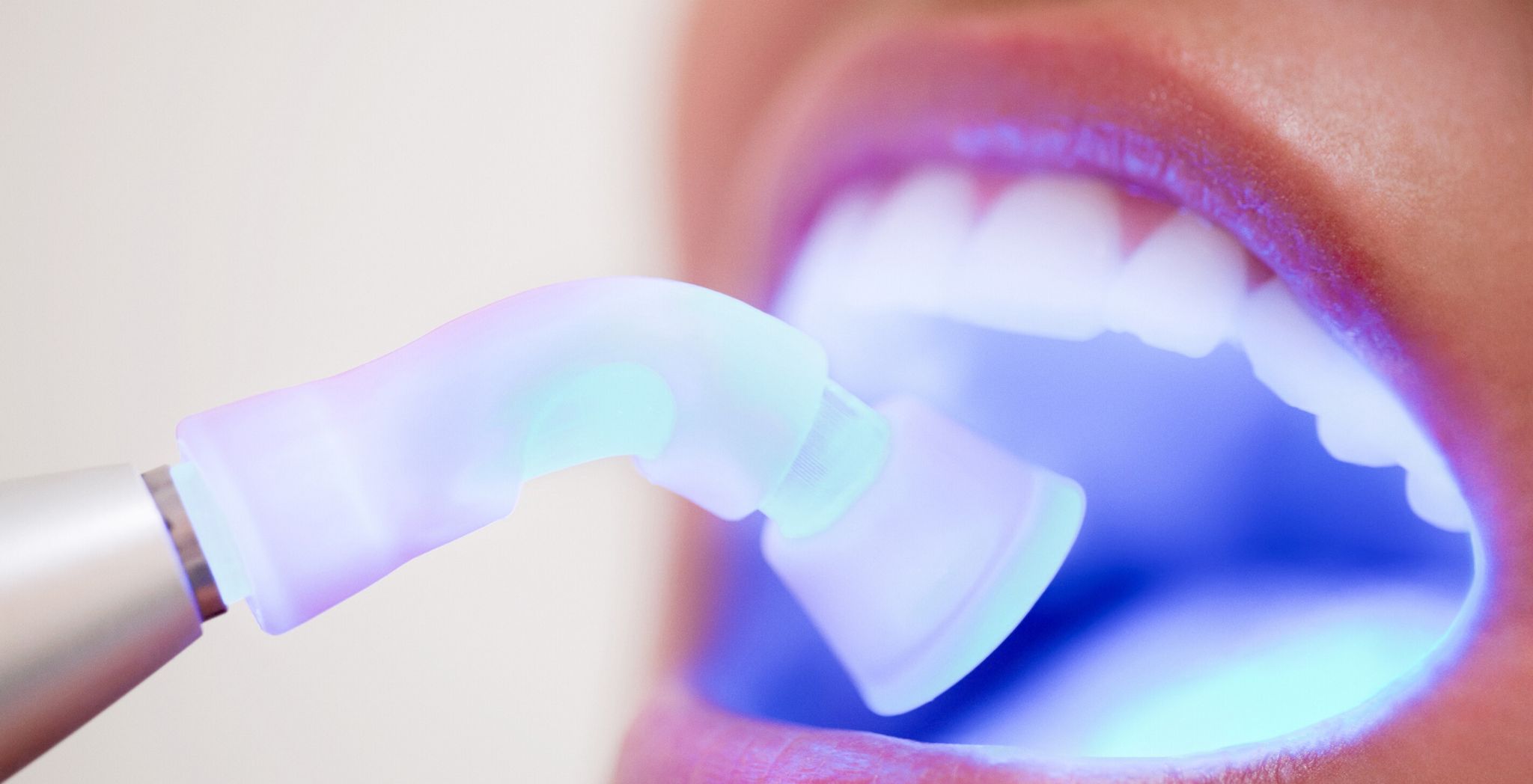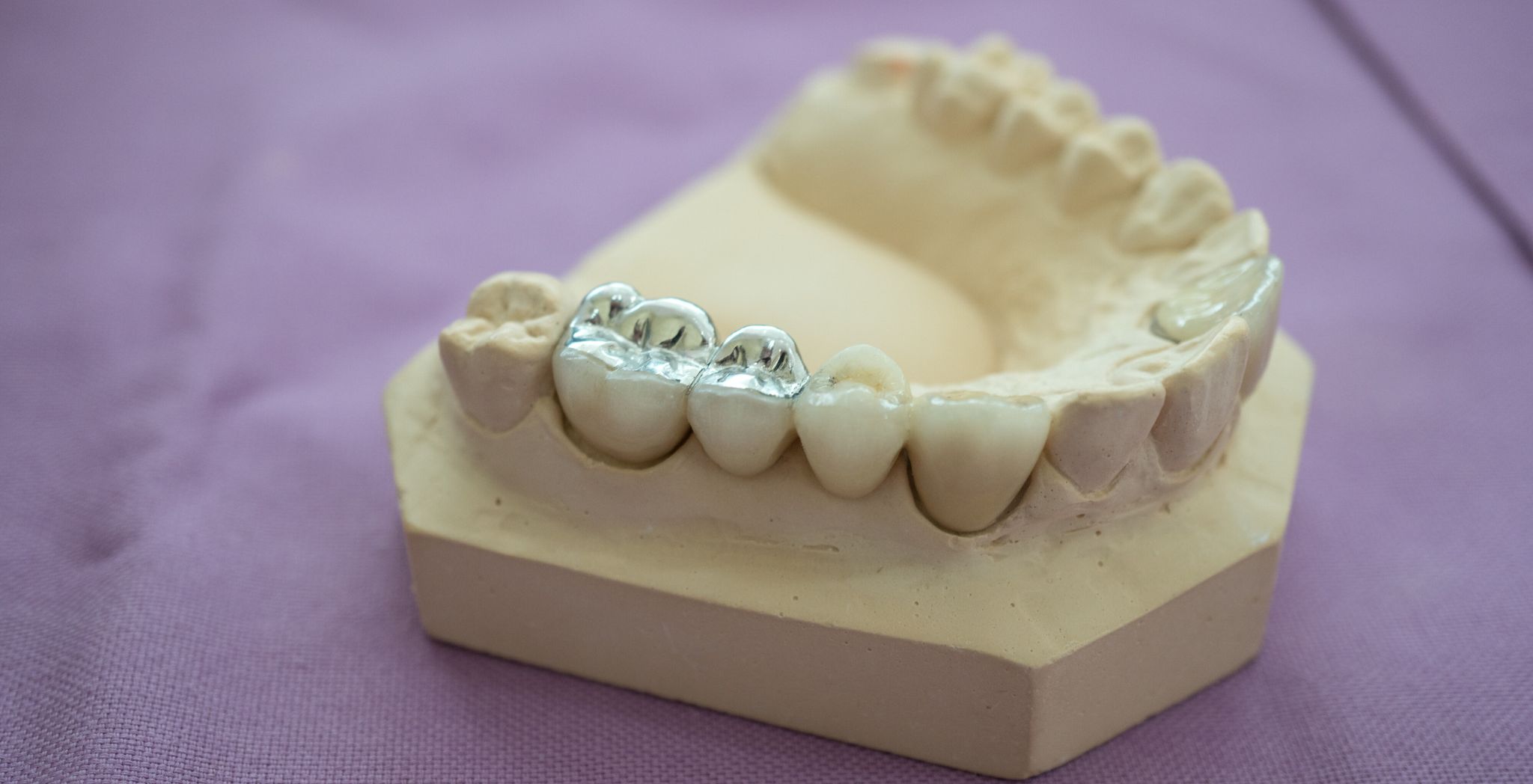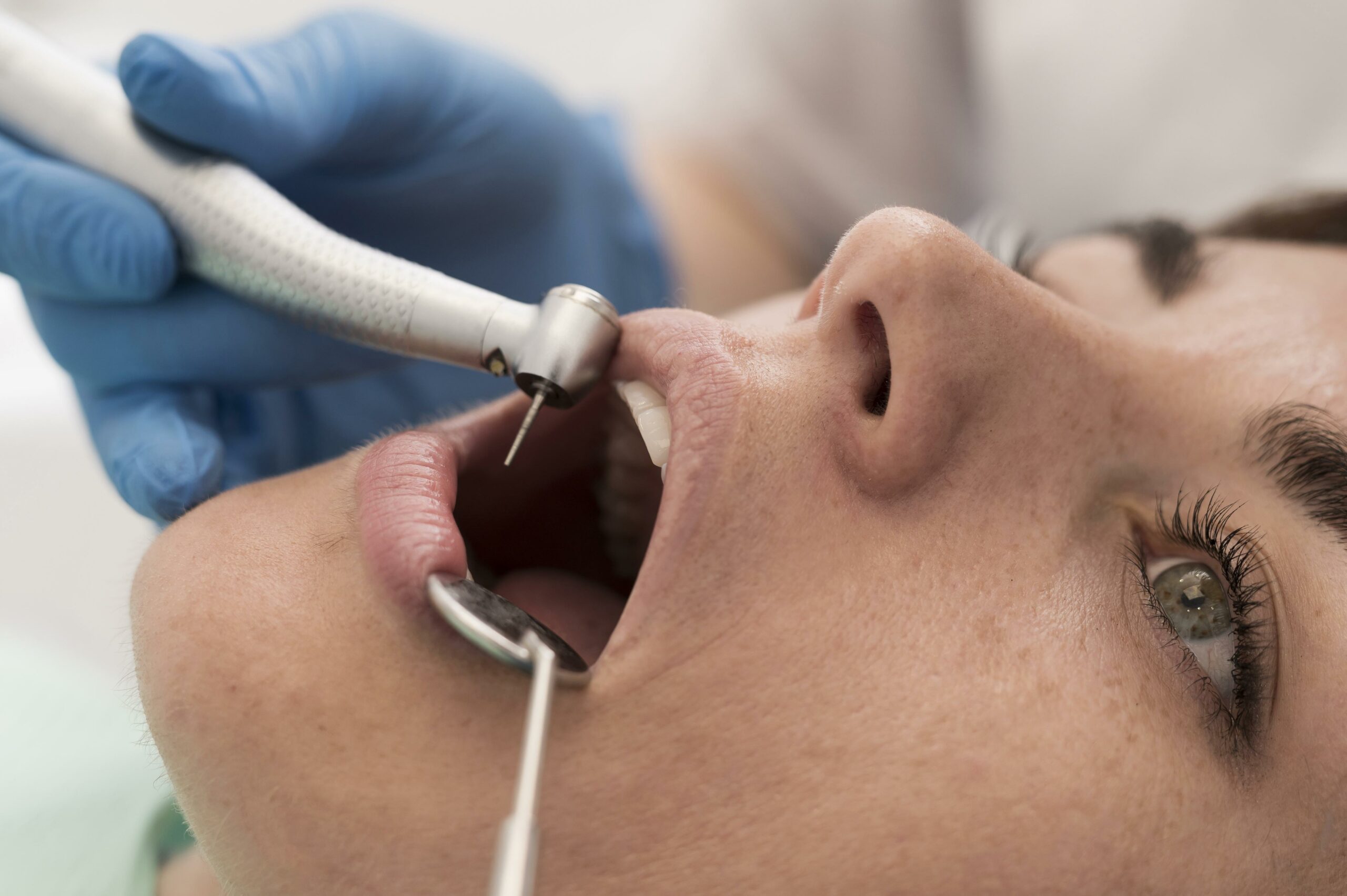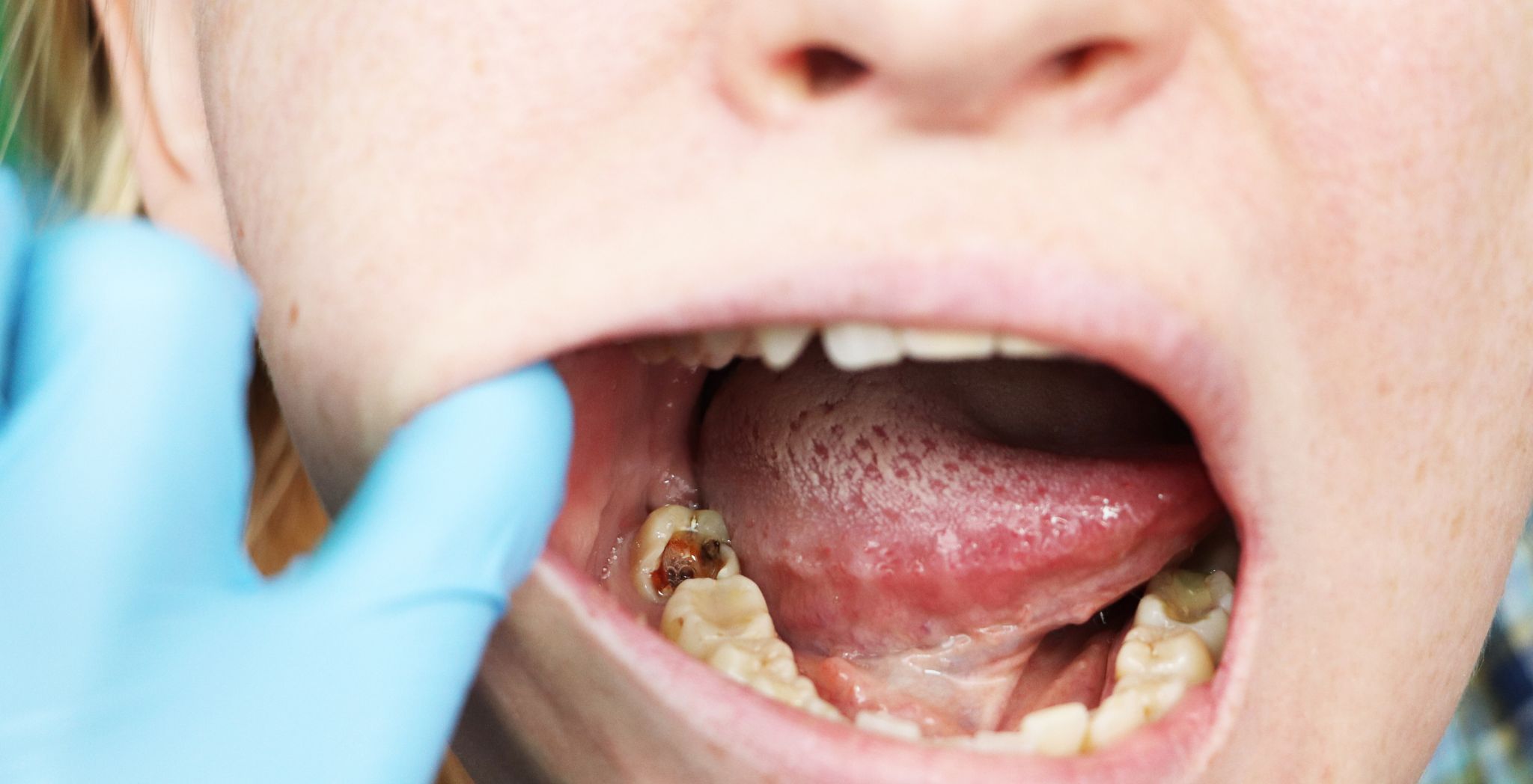Imagine biting into a juicy pear, feeling the crispness and the burst of flavor. Or picture yourself laughing freely with friends, your smile radiating confidence. Now, what if missing teeth held you back from these simple joys? What if that gap made you self-conscious or even made eating your favorite foods a challenge?
It’s a common experience. Maybe it was an accident, a stubborn tooth that had to be removed, or even the natural progression of time. Whatever the reason, missing teeth can impact more than just your appearance. They can affect your ability to eat comfortably, speak clearly, and even your overall self-esteem.
For a long time, the go-to solutions for missing teeth were dentures or bridges. While these options have helped countless people, they come with their own set of challenges. Dentures can sometimes feel loose or uncomfortable, and bridges require altering healthy adjacent teeth.
But what if there was a solution that felt and functioned just like your natural teeth? What if you could have a permanent replacement that allowed you to eat anything, smile without hesitation, and forget you ever had a missing tooth?
Enter dental implants – the modern marvel of dentistry that offers a long-lasting and natural-feeling solution for missing teeth. Think of them as tiny anchors, placed securely in your jawbone, providing a stable foundation for artificial teeth. They’re not just filling a gap; they’re restoring your smile, your confidence, and your quality of life.
Let’s dive deeper into the world of dental implants and explore how they can be the permanent solution you’ve been looking for.
What Are Dental Implants?
At their core, dental implants are artificial tooth roots made from biocompatible materials, most commonly titanium. This means they are designed to integrate seamlessly with your body without causing any adverse reactions.
Think of building a sturdy fence. You wouldn’t just place the fence posts on the ground, would you? You’d dig deep and secure them firmly in the soil to ensure they can withstand wind and pressure. Dental implants work on a similar principle.
A dental implant is surgically placed directly into your jawbone, where your natural tooth root used to be. Over time, a remarkable process called osseointegration occurs. This is where the titanium implant actually fuses with the surrounding bone, becoming a permanent and integral part of your jaw structure.
Once the implant has fully integrated, it acts as a strong and stable foundation for a replacement tooth. This replacement tooth, called a dental crown, is custom-designed to match the color, shape, and size of your natural teeth, ensuring a seamless and natural-looking smile.
A complete dental implant consists of three main parts:
- The Implant: The titanium screw that is surgically placed into the jawbone. This acts as the artificial tooth root.
- The Abutment: A small connector post that attaches to the implant and extends above the gum line. This provides a secure base for the crown.
- The Crown: The artificial tooth that is custom-made to fit the abutment and blend in with your natural teeth.
Unlike dentures, which rest on the gums, or bridges, which rely on adjacent teeth for support, dental implants stand alone, providing independent support for the replacement tooth. This is a key factor in their stability and longevity.
The Dental Implants Procedure: Step by Step
The journey to a complete smile with dental implants typically involves several stages, each crucial for a successful outcome. Don’t worry; your dentist Aspendalel will guide you through each step with care and expertise.
- Comprehensive Evaluation and Treatment Planning: The first step involves a thorough examination of your oral health. Your dentist will assess your teeth, gums, and jawbone. This often includes X-rays, and sometimes 3D scans, to determine if you have enough bone density to support an implant and to precisely plan the placement. Your dentist will also discuss your medical history and your goals for the treatment. Based on this evaluation, a personalized treatment plan will be created.
- Implant Placement: This is the surgical phase where the dental implant is carefully placed into your jawbone. The procedure is usually performed under local anesthesia, so you’ll be comfortable throughout. In some cases, sedation options are available for anxious patients. A small incision is made in the gum tissue to expose the bone, and a pilot hole is drilled to guide the placement of the implant. The implant is then gently screwed into the bone. After placement, the gum tissue is typically stitched closed, and a healing period begins.
- Osseointegration (Healing Period): This is a critical phase where the magic of osseointegration happens. Over several weeks or months, the bone grows around the titanium implant, firmly anchoring it in place. The healing time varies depending on individual factors and the location of the implant. During this period, you may be fitted with a temporary tooth replacement to maintain aesthetics and function.
- Abutment Placement: Once osseointegration is complete and the implant is stable, a minor second procedure may be needed to attach the abutment. This small connector post screws onto the implant and extends above the gum line. It serves as the attachment point for the final crown. In some cases, the abutment can be placed at the same time as the implant.
- Crown Placement: The final step involves the creation and placement of the custom-made dental crown. Your dentist will take impressions of your mouth to create a crown that perfectly fits the abutment and blends seamlessly with your natural teeth in terms of color, shape, and size. Once the crown is ready, it is securely attached to the abutment, completing your new tooth.
Throughout the entire process, your dentist from dentist chelsea will provide detailed instructions for post-operative care to ensure proper healing and the long-term success of your dental implant.
Benefits of Dental Implants: More Than Just a Pretty Smile
Dental implants offer a multitude of advantages that go beyond just filling a gap in your smile. They provide a comprehensive solution that improves both your oral health and your overall well-being.
- Permanent Solution: Unlike dentures or bridges that may need replacement over time, dental implants are designed to be a permanent solution, lasting for many years, even a lifetime, with proper care.
- Natural Look and Feel: Because they are anchored in the jawbone, dental implants feel and function just like your natural teeth. You can eat, speak, and smile with complete confidence without worrying about slippage or discomfort.
- Improved Chewing Ability: Missing teeth can make it difficult to chew certain foods. Dental implants restore your ability to enjoy a full and varied diet, contributing to better nutrition and overall health. Think of enjoying crunchy carrots or a perfectly cooked steak without any discomfort!
- Enhanced Speech: Loose dentures can sometimes affect speech. Dental implants provide a stable base for replacement teeth, allowing you to speak clearly and naturally.
- Preservation of Jawbone: When a tooth is lost, the jawbone in that area can begin to deteriorate. Dental implants stimulate bone growth, preventing bone loss and maintaining the natural shape of your face. This is a significant advantage over other tooth replacement options.
How Long Do Dental Implants Last? The Longevity Factor
One of the most appealing aspects of dental implants is their potential for long-term success. With proper care and maintenance, dental implants can last for many years, and in some cases, even a lifetime.
Several factors can influence the longevity of dental implants:
- Oral Hygiene: Maintaining excellent oral hygiene, including regular brushing, flossing, and professional cleanings, is crucial for preventing peri-implantitis, an infection that can affect the tissues surrounding the implant.
- Overall Health: Certain medical conditions, such as uncontrolled diabetes or autoimmune diseases, can affect the healing process and the long-term success of dental implants.
- Lifestyle Choices: Habits like smoking can significantly increase the risk of implant failure.
- Bone Density: Sufficient bone density is essential for the initial stability and long-term integration of the implant.
- Proper Placement: The skill and experience of the dental professional placing the implant play a vital role in its long-term success.
- Regular Dental Checkups: Routine dental visits allow your dentist to monitor the health of your implant and address any potential issues early on.
Think of your dental implant like a well-maintained piece of machinery. With regular care and attention, it can function optimally for a very long time.
Are You a Good Candidate for Dental Implants? Assessing Your Suitability
While dental implants offer a fantastic solution for many people with missing teeth, not everyone is an immediate candidate. Your dentist will conduct a thorough evaluation to determine if dental implants are the right choice for you.
Key factors that are considered include:
- Sufficient Bone Density: The jawbone needs to be strong and dense enough to support the implant. If there is significant bone loss, a bone grafting procedure may be necessary to build up the bone before implant placement.
- Healthy Gums: The gums need to be healthy and free from periodontal disease. Active gum disease can compromise the healing process and the stability of the implant.
- Overall Health: Your general health is an important consideration. Certain medical conditions may need to be well-controlled before undergoing implant surgery.
- Commitment to Oral Hygiene: You need to be willing and able to maintain good oral hygiene practices after the implant is placed.
- Non-Smoker: Smoking significantly increases the risk of implant failure and slows down the healing process. Dentists often recommend quitting smoking before considering dental implants.
Don’t be discouraged if you are initially told that you are not an ideal candidate. Advances in dentistry have made it possible for more people to benefit from dental implants through procedures like bone grafting.
Caring for Your Dental Implants: Maintaining Your Investment
Caring for your dental implants is essential for their long-term success. The good news is that the maintenance routine is very similar to caring for your natural teeth.
- Brush Regularly: Brush your teeth at least twice a day using a soft-bristled toothbrush and non-abrasive toothpaste. Pay close attention to the area around the implant.
- Floss Daily: Flossing helps to remove plaque and food particles from between your teeth and around the implant. Special floss or interdental brushes may be recommended for cleaning around the implant.
- Use an Antimicrobial Mouthwash: Rinsing with an antimicrobial mouthwash can help to reduce bacteria in your mouth.
- Schedule Regular Dental Checkups: It’s crucial to visit your dentist for regular checkups and professional cleanings. Your dentist can monitor the health of your implant and address any potential issues early on.
- Avoid Hard and Sticky Foods: While dental implants are strong, it’s wise to avoid excessively hard or sticky foods that could potentially damage the crown.
Think of your dental implants as a valuable investment in your smile and your health. Just like any investment, they require regular care to ensure they last for years to come.
Risks and Considerations: Understanding Potential Challenges
While dental implant surgery has a high success rate, like any surgical procedure, there are potential risks and considerations to be aware of.
- Infection: Infection at the implant site is a possibility, especially in the initial healing period. Your dentist will provide instructions on how to minimize this risk.
- Nerve Damage: In rare cases, there is a risk of nerve damage during implant placement, which can cause temporary or permanent numbness or tingling in the lips, chin, or gums.
- Sinus Problems: When implants are placed in the upper back jaw, there is a small risk of affecting the sinuses.
- Implant Failure: While rare, the implant may fail to integrate with the bone. This can happen due to various factors, including infection, poor bone quality, or smoking.
- Cost: Dental implants can be more expensive than other tooth replacement options upfront. However, considering their longevity and long-term benefits, they can be a cost-effective solution in the long run.
It’s important to have an open and honest discussion with your dentist about these potential risks and to understand the benefits and limitations of dental implants in your specific situation.
Conclusion: Embrace the Confidence of a Complete Smile
Missing teeth can have a significant impact on your life, affecting everything from your ability to eat and speak comfortably to your self-confidence. Dental implants offer a revolutionary solution, providing a permanent, natural-feeling, and long-lasting way to restore your smile and improve your quality of life.
From the initial consultation to the final placement of the crown, the dental implant procedure is a carefully planned and executed process designed to give you back the smile you deserve. With their numerous benefits, including bone preservation, improved chewing ability, and enhanced aesthetics, dental implants are truly a remarkable advancement in modern dentistry.
While there are considerations such as cost and potential risks, the long-term advantages and the potential to regain a complete and confident smile make dental implants a worthwhile investment for many individuals.
Call to Action: Take the First Step Towards Your New Smile
If you’re tired of living with missing teeth and are looking for a permanent solution that feels and functions like natural teeth, we encourage you to explore the possibility of dental implants.
Schedule a consultation with our experienced dental team today! We will thoroughly evaluate your oral health, discuss your options, and answer any questions you may have. Let us help you take the first step towards a brighter, healthier, and more confident smile with dental implants. Your journey to a complete smile starts here!










